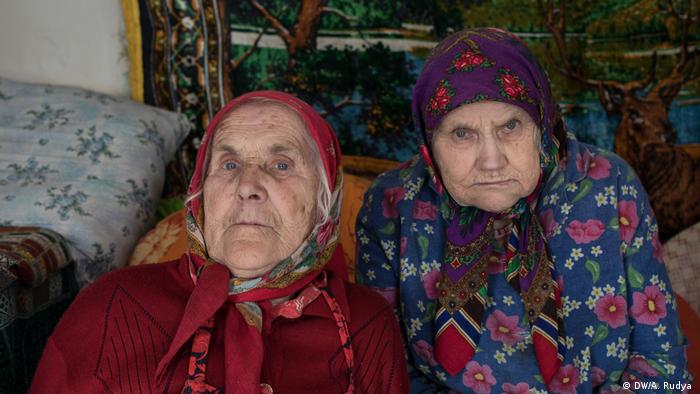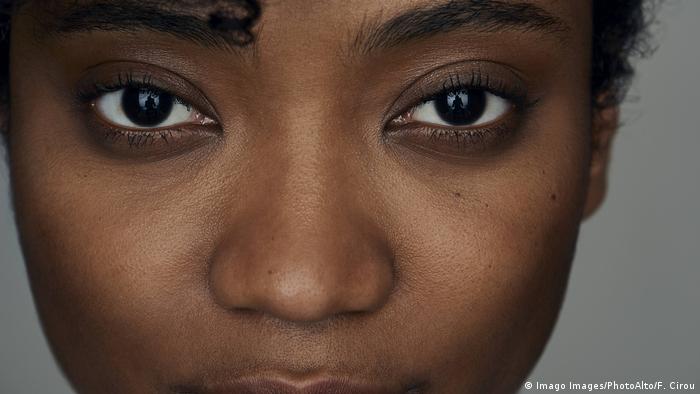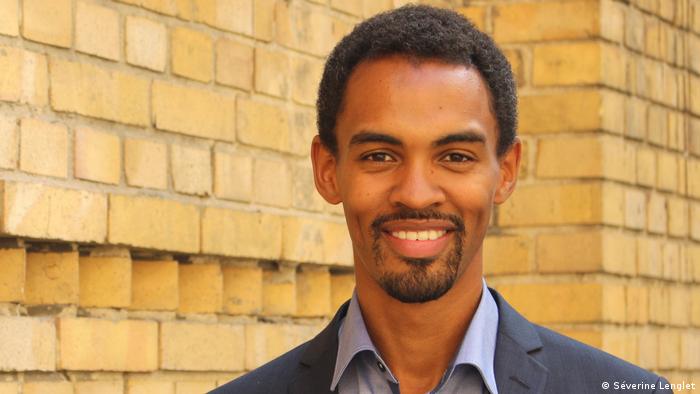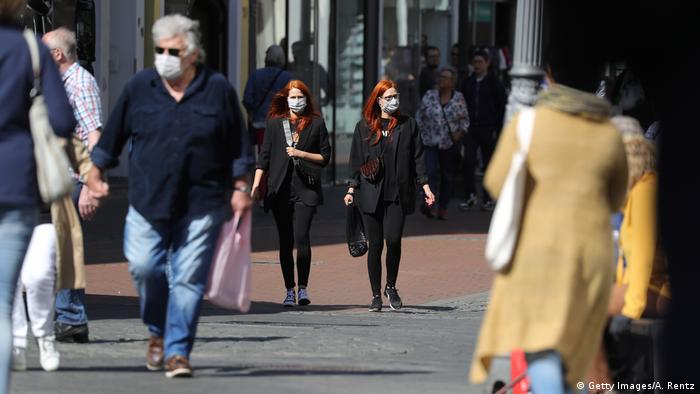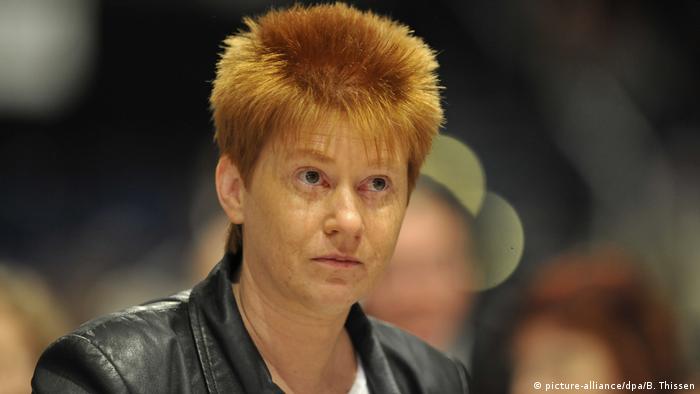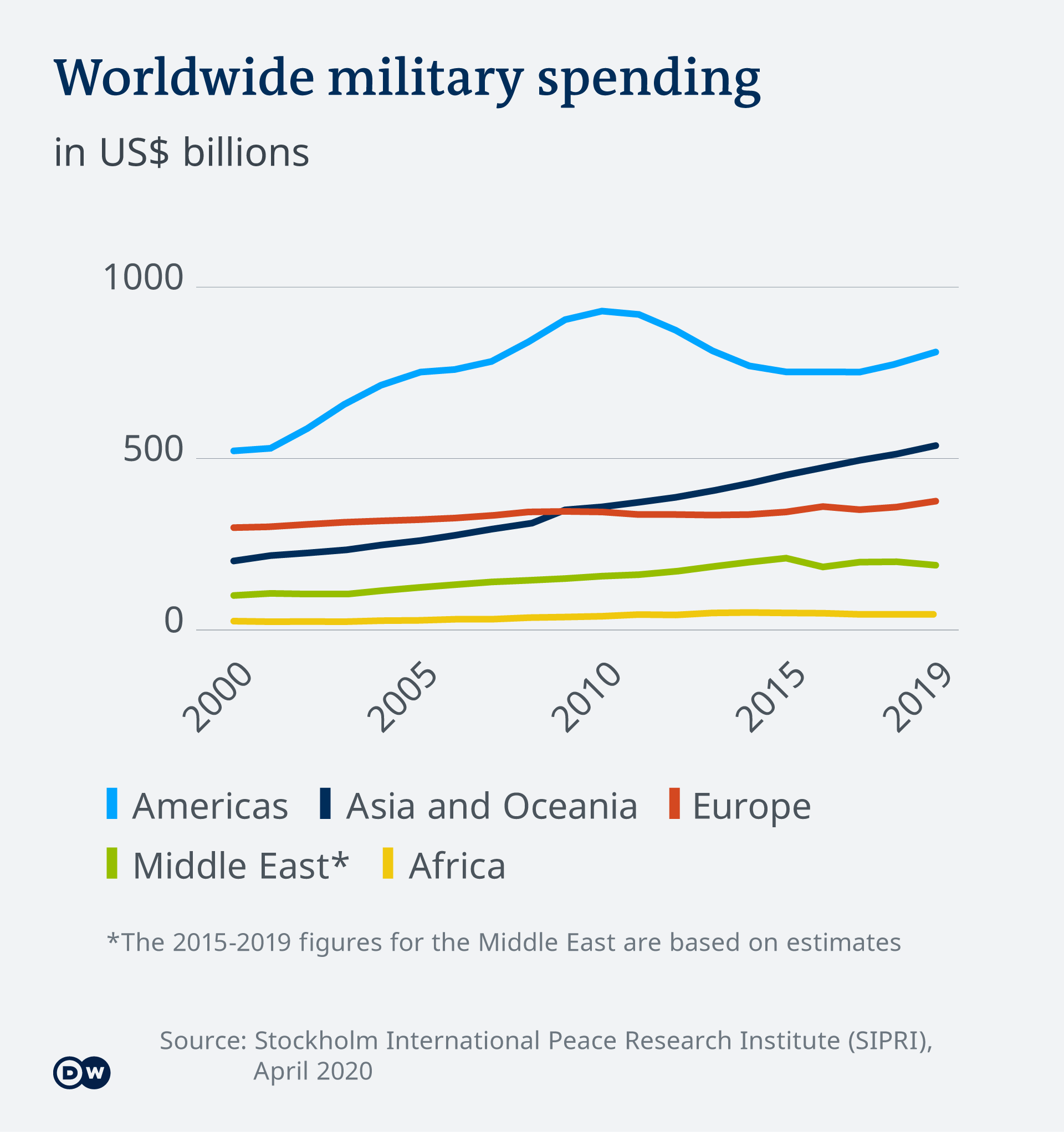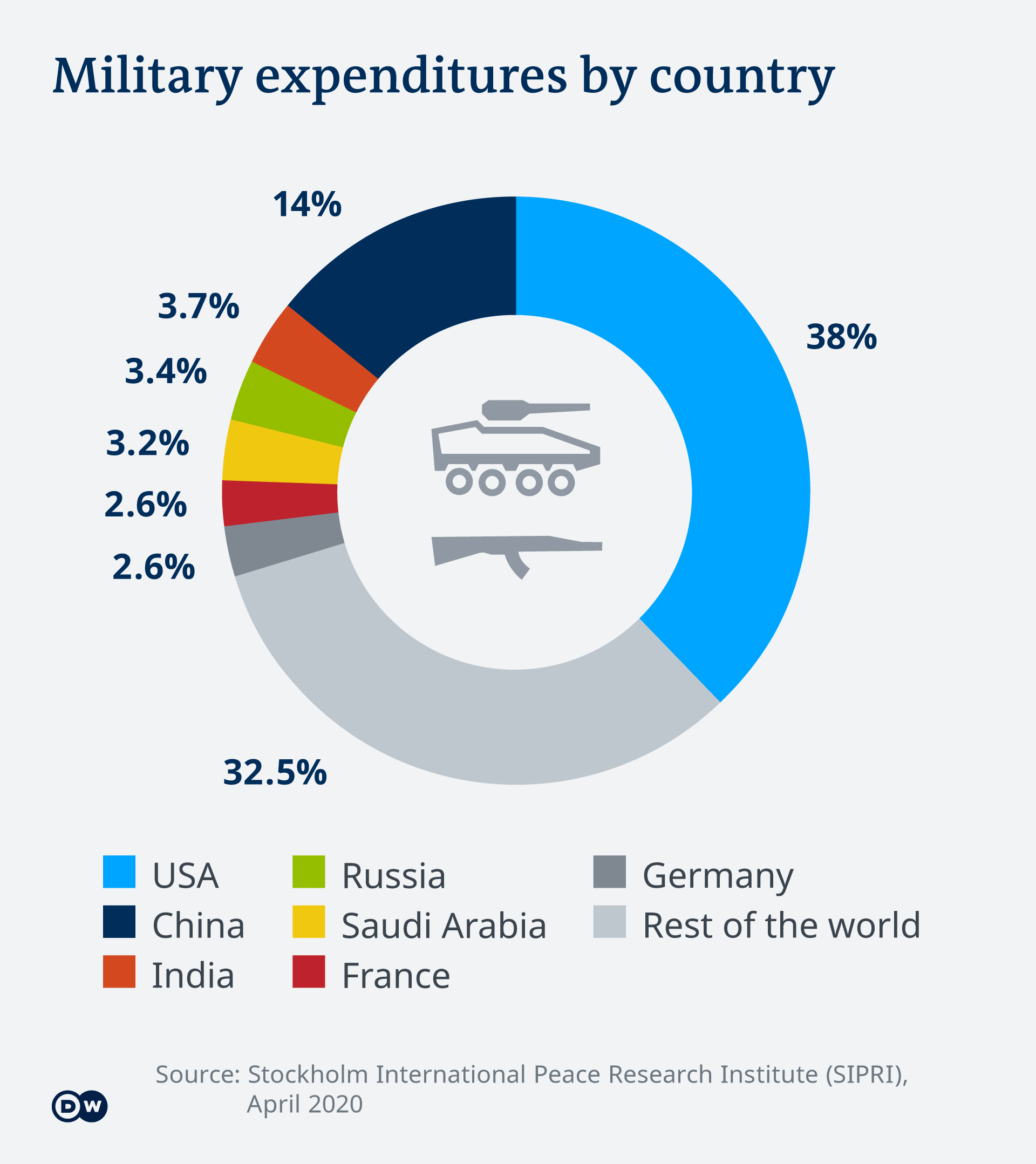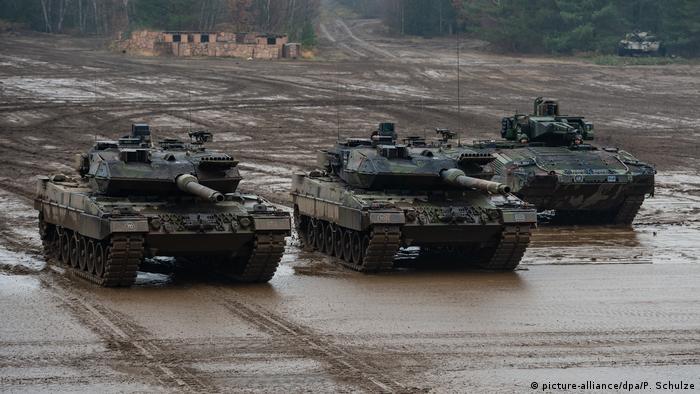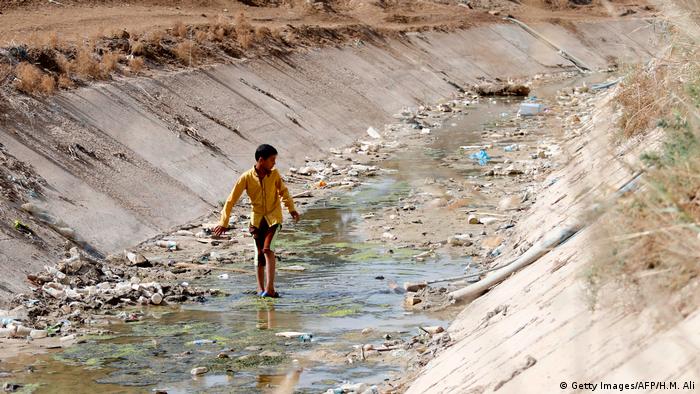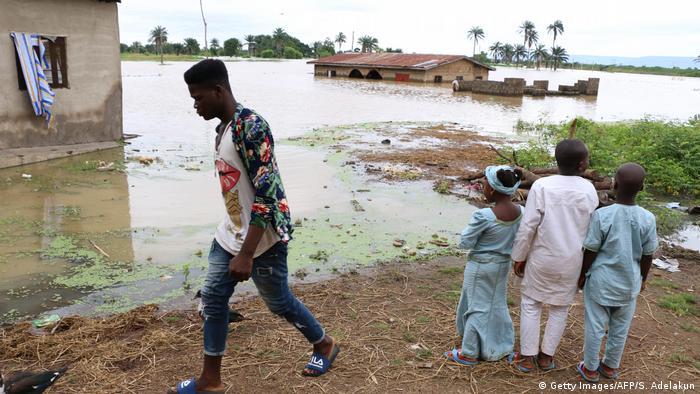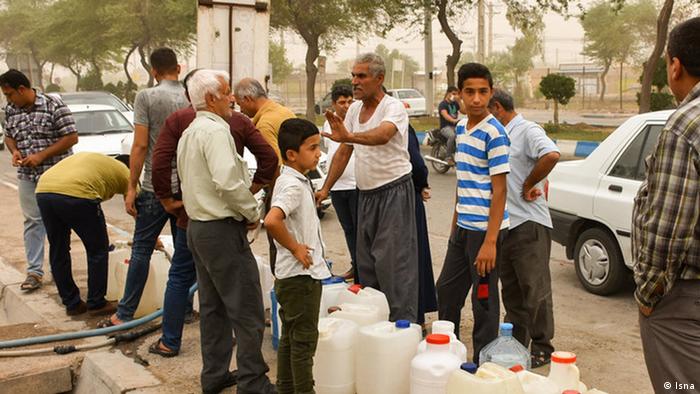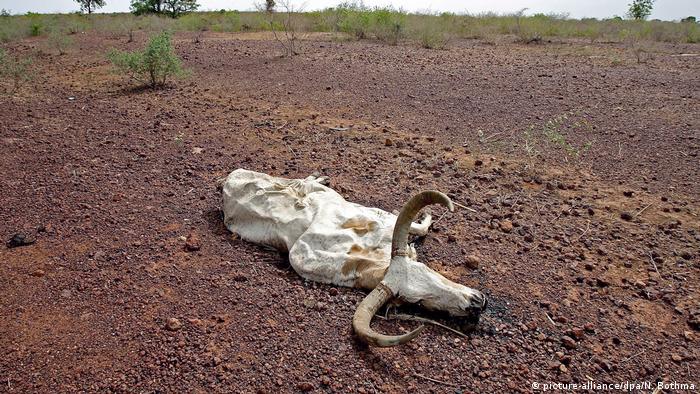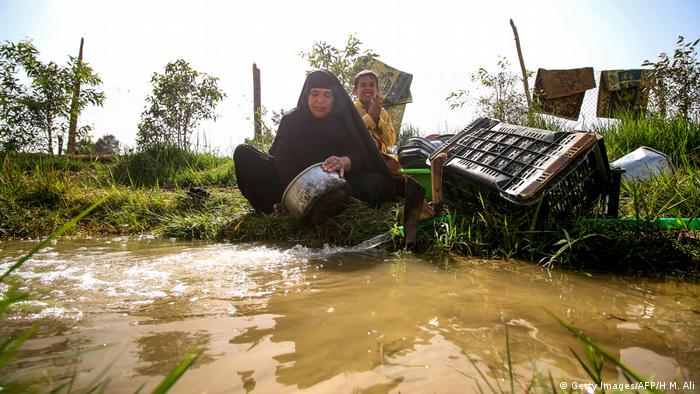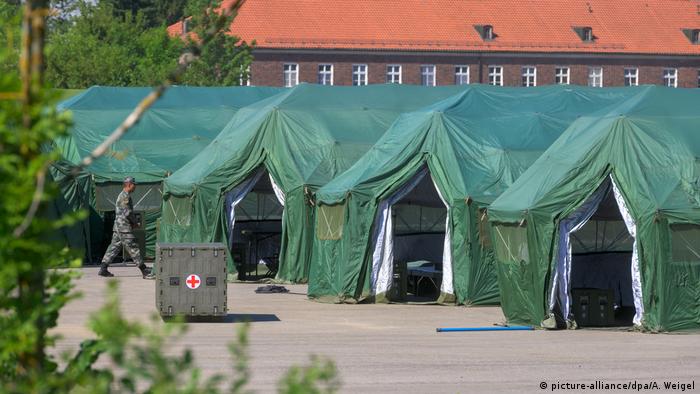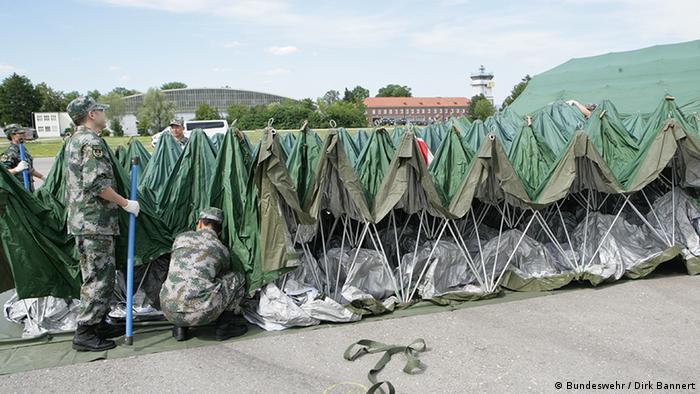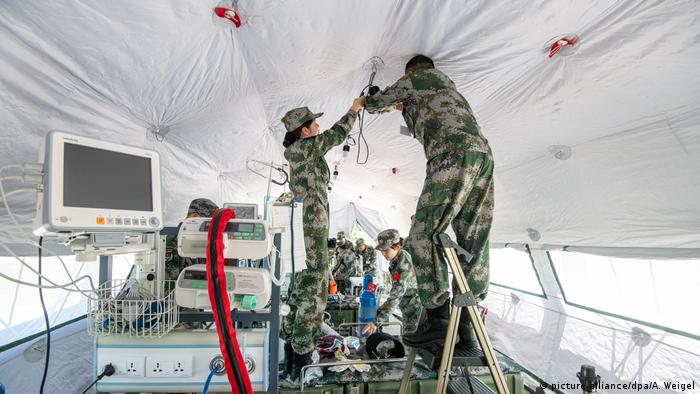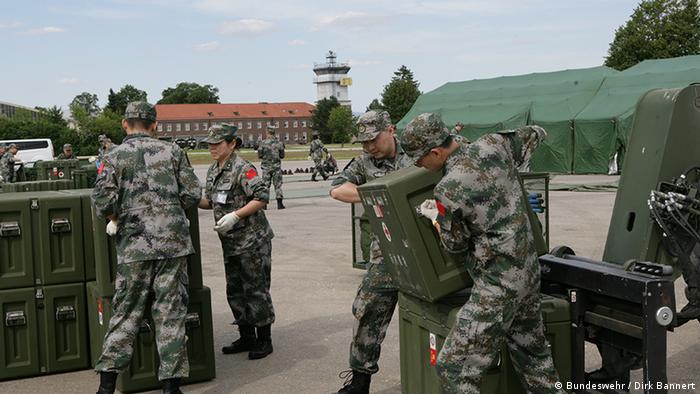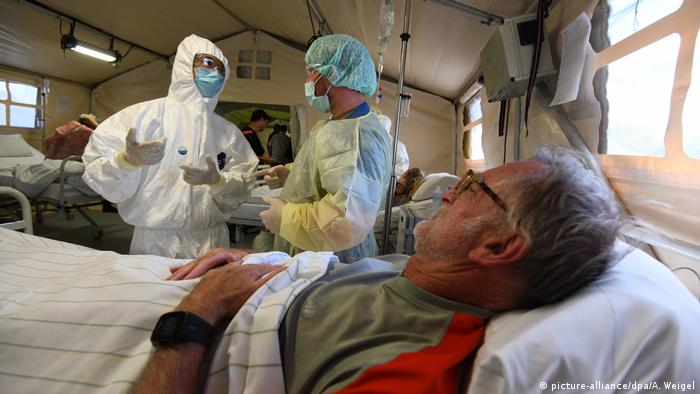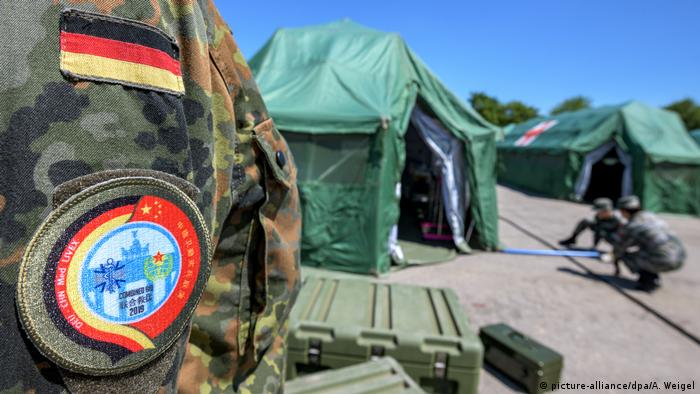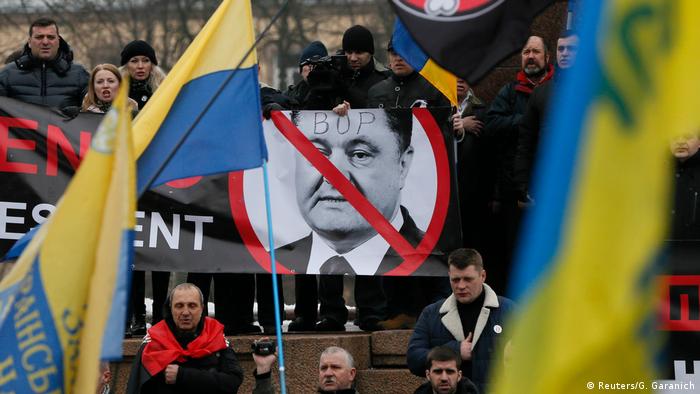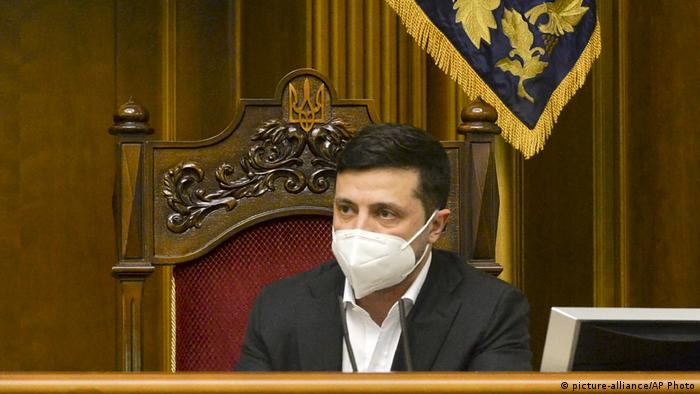Issued on: 26/04/2020

US President Donald Trump at one of his daily White House news briefings. © Mandel Ngan, AFP
Text by:Tamar SHILOH VIDON
Disinformation and conspiracy theories surrounding the global coronavirus pandemic have flooded the internet – often with an additional nudge from world leaders and celebrities – presenting a challenge for health authorities, social media platforms, journalists, fact-checkers and concerned citizens worldwide.
US health officials scrambled this week to put out a fire started by President Donald Trump when he suggested in his Thursday press briefing that injecting disinfectant might be worth studying for the treatment of Covid-19.
As worried Americans called hotlines to request more information, doctors and health experts reacted strongly, warning people against trying such dangerous homemade remedies.
Disinformation is a scourge of our era that tends to piggyback on any crisis, particularly a global one like the current pandemic: From conspiracy theories about how it began (in a Chinese or American lab?) and how it spreads (boosted by 5G networks?), to fake news about the reappearance of seldom viewed animals in ports and canals, to bogus remedies (some deadlier than the disease itself), the internet is awash with it.
“We’re not just fighting an epidemic; we’re fighting an infodemic,” World Health Organization (WHO) Director-General Tedros Adhanom Ghebreyesus warned in February.
The WHO defines an infodemic as “an over-abundance of information, some accurate and some not, that makes it hard for people to find trustworthy sources and reliable guidance when they need it”.
Top-down spread
The current infodemic has been worsened by the global scale of the health crisis and by the contributions of social media influencers and even some world leaders.
According to a study by the Reuters Institute for the Study of Journalism and the Oxford Internet Institute entitled, Types, claims and sources of Covid-19 misinformation, “false information spread by politicians, celebrities, and other prominent public figures” accounted for 69 percent of total engagement on social media, even though their claims made up just 20 percent of those included in the study’s sample.
With 78.4 million followers on Twitter and a TV audience that sometimes surpasses 10 million viewers for his daily briefings, Trump is one of the world’s leading global influencers.
In his briefing at the White House on Thursday, Trump suggested that strong sunlight or UV light could be used to treat Covid-19. He then went on to muse about the potential benefits of disinfectant as a treatment.
“I see the disinfectant, where it knocks it out in a minute – one minute,” Trump said of the virus. “And is there a way we can do something like that, by injection inside or almost a cleaning?” he asked.
Health officials worldwide reacted strongly, warning people not to ingest disinfectant.
“It is unfortunate that I have to comment on this, but people should under no circumstances ingest or inject bleach or disinfectant,” Patrice Harris, president of the American Medical Association, said in a statement Friday. “Rest assured when we eventually find a treatment for or vaccine against Covid-19, it will not be in the cleaning supplies aisle.”
Reckitt Benckiser, the manufacturer of the disinfectant Lysol, wrote on its website: “As a global leader in health and hygiene products, we must be clear that under no circumstance should our disinfectant products be administered into the human body (through injection, ingestion, or any other route).”
The White House said on Friday that Trump was being sarcastic in his disinfectant comments and blamed the media for taking his words out of context.
“Leave it to the media to irresponsibly take President Trump out of context and run with negative headlines,” White House press secretary Kayleigh McEnany said in a statement.
But it wasn’t the first time Trump made unsubstantiated remarks about possible treatments for the virus. In March, Trump announced in a news briefing that the anti-malaria drug hydroxychloroquine was being fast-tracked for approval by the FDA.
“Now, a drug called chloroquine – and some people would add to it ‘hydroxy’ – Hydroxychloroquine. So chloroquine or hydroxychloroquine. Now, this is a common malaria drug ... It’s shown very encouraging – very, very encouraging early results. And we’re going to be able to make that drug available almost immediately. And that’s where the FDA (US Food and Drug Administration) has been so great. They – they’ve gone through the approval process; it’s been approved. And they did it – they took it down from many, many months to immediate,” Trump said.
Days later, a man in the US state of Arizona died after he and his wife ingested chloroquine phosphate, used for treating parasites in fish. The man’s wife told NBC News they took it after she’d watched televised briefings during which President Trump talked about the potential benefits of chloroquine.
On April 24, the FDA strongly warned against using the prescription hydroxychloroquine, or chloroquine, for treating the virus outside of hospitals or clinical trials due to the risk of heart rhythm problems.
Social media steps up
Social media platforms, often hesitant to take decisive action against political disinformation and fake news, have stepped up and are taking action.
On March 17, several leading technology companies and social media firms issued a joint statement committing to “helping millions of people stay connected while also jointly combating fraud and misinformation about the virus, elevating authoritative content on our platforms, and sharing critical updates in coordination with government healthcare agencies around the world”.
Joint Industry Statement from @Facebook, @google, @LinkedIn, @Microsoft, @reddit, @Twitter and @YouTube https://t.co/8H1XVFt2N0 pic.twitter.com/GGJdX7mFKb— Facebook Newsroom (@fbnewsroom) March 17, 2020
According to the Reuters Institute study, the platforms have indeed removed, or attached warnings to, social media posts flagged as false by independent fact-checkers.
But the response varied from company to company. “On Twitter, 59% of posts rated as false in our sample by fact-checkers remain up. On YouTube, 27% remain up, and on Facebook, 24% of false-rated content in our sample remains up without warning labels,” the study found.
Google announced that it was setting up a 24-hour incident-response team that removes misinformation from search results and from YouTube, and that it would send users seeking information about the coronavirus to the WHO website and to other official health agencies.
Among the measures taken was a decision in late March to remove posts shared by Brazil’s far-right President Jair Bolsonaro containing disinformation about the virus.
YouTube pulled two videos from Bolsonaro’s account and Facebook removed posts on its platform and on Instagram (which it owns) where Bolsonaro, like Trump, touted the benefits of the anti-malaria drug hydroxychloroquine in treating Covid-19.
Twitter earlier had also removed two tweets that included a video showing the Brazilian leader praising the drug and calling for an end to social distancing.
Bolsonaro has dismissed Covid-19 as a “fantasy” and a “small flu”, even as cases have been overwhelming hospitals, morgues and cemeteries across Latin America’s largest country. He recently also fired his health minister and joined protests in the capital Brasilia against shutdown measures imposed by governors.

Brazil's President Jair Bolsonaro marching with his supporters, in Brasilia, Brazil, on April 19, 2020, to protest against quarantine and social distancing measures amid the Covid-19 outbreak, © Ueslei Marcelino, Reuters
News media and fact-checkers
News media and fact-checking organisations have also been working to dispel fake news and keep the public informed with facts from doctors, scientists and internationally recognised institutions like the WHO.
The Reuters Institute study found that independent fact-checkers moved especially quickly to debunk false information about the pandemic, with the number of English-language fact-checks rising more than 900 percent between January and March.
“The growing willingness of some news media to call out falsehoods and lies from prominent politicians can perhaps help counter this (though it risks alienating their strongest supporters),” the report’s authors wrote.
And the decision by Twitter, Facebook and YouTube to remove Bolsonaro’s posts “was in our view an important moment in how platform companies handle the problem that a lot of misinformation comes from the top”, the report said.
A perceived threat to free speech
The concerted, aggressive effort by social media to limit the spread of harmful content about the virus has been welcomed by NGOs, fact-checking organisations and others. But the platforms are not promising that this effort will spill over into the battle against political misinformation.
In a recent interview with the New York Times, Facebook CEO Mark Zuckerberg said it was easier to differentiate between good and bad information in a medical crisis than in politics. WHO directives and clear-cut scientific data make it simpler to discern the fake from the true.
“When you’re dealing with a pandemic, a lot of the stuff we’re seeing just crossed the threshold,” Zuckerberg said. “So it’s easier to set policies that are a little more black and white and take a much harder line.”
Using the same tactics to fight political disinformation is more complex because of the concern for freedom of speech. And critics have already sounded the alarm, even over the recent measures taken to fight the spread of Covid-19 misinformation.
“Twitter says it will delete posts that ‘could lead to widespread panic, social unrest, or large-scale disorder’. That could be absolutely anything,” Dan Gainor, vice president of the conservative content analysis group Media Research Center, told Fox News.
“Will it delete posts that show China lied and tens of thousands of Americans died? Will it delete posts about protests? Or just protests Twitter disagrees with?” Gainor asked.
“Twitter has served as a newswire showing breaking news photos and video from around the world. Now Twitter wants to restrict that information,” he told the US network. “It’s a rule only a dictator could love.”
Since introducing our updated policies on March 18, we’ve removed over 2,230 Tweets containing misleading and potentially harmful content. Our automated systems have challenged more than 3.4 million accounts targeting manipulative discussions around COVID-19.— Twitter Safety (@TwitterSafety) April 22, 2020
Some governments have already been criticised for adopting measures against the spread of fake news during the epidemic that are seen as threatening free speech in the longer term.
Hungary passed a law in March giving sweeping powers to Prime Minister Viktor Orban that include heavy prison terms for publishers of “false information” about the virus or the government’s own measures, sparking new concerns for dwindling press freedoms in the country.
In Bulgaria, the government proposed a similarly controversial law, mandating prison terms for those spreading fake news about infectious diseases, AFP reported.
Algerian lawmakers also passed a law criminalising the broadcast of “fake news” deemed harmful to “public order and state security”, according to AFP. The law, opposed by protesters and rights activists, “criminalises ... the broadcast of fake news that seeks to undermine order and public security” as well as “state security and national unity”.
Tips from fact-checkers
Fact-checking organisations have not only stepped up their efforts to debunk disinformation, they are also providing educational programmes on news literacy and tips for citizens on how to identify fake news.
The International Fact Checking Network, a unit of the nonprofit Poynter Institute for Media Studies, set up a #CoronaVirusFacts alliance in January that has united more than 100 fact-checkers from around the world to publish, share and translate facts surrounding the new coronavirus. It shares a variety of Covid-19 resources, including fact-checking tools, tips for journalists, reports and newsletters.
Some suggestions to safeguard oneself against the infodemic include taking a deep breath before sharing the latest news about the virus – especially if it’s emotional or divisive; referring to the WHO website or your national health website to get acquainted with the facts (and misperceptions) about the disease; and, in general, trusting scientists over politicians.
One of the most common ways misinformation has been spread is through photos that were altered or presented out of context. The fact-checker First Draft offers a toolbox to help verify images. Vishvas News, an Indian fact-checking organisation, offers a guide to checking both images and videos.
Disinformation has been around for millennia and is not likely to stop spreading anytime soon. But the hope is that the measures being taken now (and tips from fact-checkers) could help people make better sense of the current infodemic.
And as the experts continue studying the coronavirus – its modes of transmission, infection and mortality rates – more reliable information will gradually eclipse the fictions, while scientists continue to test treatments and work on developing a vaccine.
News media and fact-checkers
News media and fact-checking organisations have also been working to dispel fake news and keep the public informed with facts from doctors, scientists and internationally recognised institutions like the WHO.
The Reuters Institute study found that independent fact-checkers moved especially quickly to debunk false information about the pandemic, with the number of English-language fact-checks rising more than 900 percent between January and March.
“The growing willingness of some news media to call out falsehoods and lies from prominent politicians can perhaps help counter this (though it risks alienating their strongest supporters),” the report’s authors wrote.
And the decision by Twitter, Facebook and YouTube to remove Bolsonaro’s posts “was in our view an important moment in how platform companies handle the problem that a lot of misinformation comes from the top”, the report said.
A perceived threat to free speech
The concerted, aggressive effort by social media to limit the spread of harmful content about the virus has been welcomed by NGOs, fact-checking organisations and others. But the platforms are not promising that this effort will spill over into the battle against political misinformation.
In a recent interview with the New York Times, Facebook CEO Mark Zuckerberg said it was easier to differentiate between good and bad information in a medical crisis than in politics. WHO directives and clear-cut scientific data make it simpler to discern the fake from the true.
“When you’re dealing with a pandemic, a lot of the stuff we’re seeing just crossed the threshold,” Zuckerberg said. “So it’s easier to set policies that are a little more black and white and take a much harder line.”
Using the same tactics to fight political disinformation is more complex because of the concern for freedom of speech. And critics have already sounded the alarm, even over the recent measures taken to fight the spread of Covid-19 misinformation.
“Twitter says it will delete posts that ‘could lead to widespread panic, social unrest, or large-scale disorder’. That could be absolutely anything,” Dan Gainor, vice president of the conservative content analysis group Media Research Center, told Fox News.
“Will it delete posts that show China lied and tens of thousands of Americans died? Will it delete posts about protests? Or just protests Twitter disagrees with?” Gainor asked.
“Twitter has served as a newswire showing breaking news photos and video from around the world. Now Twitter wants to restrict that information,” he told the US network. “It’s a rule only a dictator could love.”
Since introducing our updated policies on March 18, we’ve removed over 2,230 Tweets containing misleading and potentially harmful content. Our automated systems have challenged more than 3.4 million accounts targeting manipulative discussions around COVID-19.— Twitter Safety (@TwitterSafety) April 22, 2020
Some governments have already been criticised for adopting measures against the spread of fake news during the epidemic that are seen as threatening free speech in the longer term.
Hungary passed a law in March giving sweeping powers to Prime Minister Viktor Orban that include heavy prison terms for publishers of “false information” about the virus or the government’s own measures, sparking new concerns for dwindling press freedoms in the country.
In Bulgaria, the government proposed a similarly controversial law, mandating prison terms for those spreading fake news about infectious diseases, AFP reported.
Algerian lawmakers also passed a law criminalising the broadcast of “fake news” deemed harmful to “public order and state security”, according to AFP. The law, opposed by protesters and rights activists, “criminalises ... the broadcast of fake news that seeks to undermine order and public security” as well as “state security and national unity”.
Tips from fact-checkers
Fact-checking organisations have not only stepped up their efforts to debunk disinformation, they are also providing educational programmes on news literacy and tips for citizens on how to identify fake news.
The International Fact Checking Network, a unit of the nonprofit Poynter Institute for Media Studies, set up a #CoronaVirusFacts alliance in January that has united more than 100 fact-checkers from around the world to publish, share and translate facts surrounding the new coronavirus. It shares a variety of Covid-19 resources, including fact-checking tools, tips for journalists, reports and newsletters.
Some suggestions to safeguard oneself against the infodemic include taking a deep breath before sharing the latest news about the virus – especially if it’s emotional or divisive; referring to the WHO website or your national health website to get acquainted with the facts (and misperceptions) about the disease; and, in general, trusting scientists over politicians.
One of the most common ways misinformation has been spread is through photos that were altered or presented out of context. The fact-checker First Draft offers a toolbox to help verify images. Vishvas News, an Indian fact-checking organisation, offers a guide to checking both images and videos.
Disinformation has been around for millennia and is not likely to stop spreading anytime soon. But the hope is that the measures being taken now (and tips from fact-checkers) could help people make better sense of the current infodemic.
And as the experts continue studying the coronavirus – its modes of transmission, infection and mortality rates – more reliable information will gradually eclipse the fictions, while scientists continue to test treatments and work on developing a vaccine.
###

